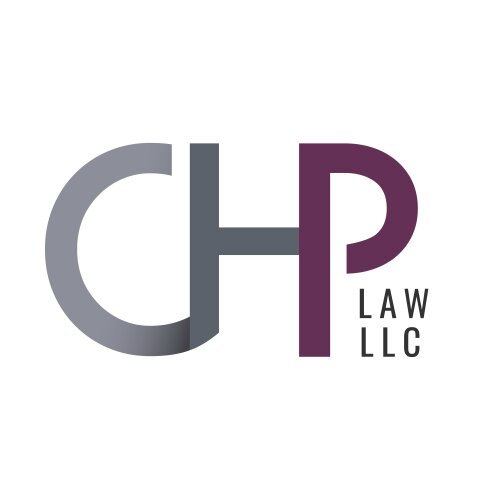Best Lawsuits & Disputes Lawyers in Raffles Place
Share your needs with us, get contacted by law firms.
Free. Takes 2 min.
List of the best lawyers in Raffles Place, Singapore
Singapore Lawsuits & Disputes Legal Articles
Browse our 2 legal articles about Lawsuits & Disputes in Singapore written by expert lawyers.
- Mediation: Keeping disputes out of court
- To all business owners, managers, and executives. You start your business. You have a dispute. One thing that you will definitely regret in such a case is not having a mandatory Mediation Clause in your agreements.Singapore is at the forefront of the movement to encourage mediation instead of more abrasive... Read more →
- Corporate Tip – Shareholder’s Agreement
- I started my law firm renting desk space at a very kind lawyer’s office. He was my first boss in Law, Mr Alain A Johns of Alain A Johns Partnership. I was his intern for two months in 2006. We were having coffee one day in late 2017 when I... Read more →
About Lawsuits & Disputes Law in Raffles Place, Singapore
Raffles Place, like the rest of Singapore, is governed by a comprehensive and sophisticated legal system that covers a wide array of lawsuits and disputes. This includes, but is not limited to, contract disputes, personal injury claims, landlord-tenant disputes, commercial issues, and intellectual property conflicts. The resolution of these disputes can be achieved through formal litigation in court or alternative dispute resolution methods like mediation or arbitration, depending on the details and nature of the dispute.
Why You May Need a Lawyer
Legal issues in the realm of lawsuits and disputes are often intricate and multifaceted. Navigating the legal landscape, understanding the pertinent laws, and ensuring compliance with procedural requirements can be challenging for someone lacking legal proficiency. Thus, hiring a lawyer can be crucial for protecting your rights, as they can provide valuable insights, legal interpretations, strategic advice, and represent you effectively during negotiations or in court.
Local Laws Overview
Singapore law, which governs Raffles Place, adheres to the principles of common law - similar to countries like the United Kingdom and the United States, albeit with local modifications. For civil matters related to lawsuits and disputes, the primary legislation is the Civil Law Act and the Rules of Court. However, the nature of the dispute may require reference to other laws such as the Contracts Act, Property Law Act, Torts Act, etc. The judgement of each case is largely fact-driven and judges exercise discretion on the applicable law based on facts presented.
Frequently Asked Questions
What is the court process in Singapore?
The Singapore court process usually involves the filing of a claim, the defendant’s response, a period of discovery where both parties share evidence, mediation, and if necessary, trial and judgement.
Do I need a lawyer to represent me in court?
While it is legally possible to represent yourself in court, it is generally advisable to hire a lawyer due to the complexity of legal procedures and the potential serious outcomes of the case.
What is Alternative Dispute Resolution (ADR)?
ADR includes methods like mediation and arbitration. These are less formal, and often faster and less contentious means of resolving disputes outside the traditional court process.
How long does a lawsuit typically take in Singapore?
The duration of a lawsuit is difficult to predict with precision as it depends on the complexity of the case, the parties involved, and the court’s schedule. However, it can take a few months to a few years.
Is there a time limit for filing a lawsuit?
Yes, limitation periods exist under the Limitation Act, and vary depending on the type of claim. Hence quick legal advice is crucial once a dispute arises.
Additional Resources
The Singapore Judiciary's website provides extensive resources related to the legal process. The State Courts and Supreme Court websites provide information on individual court procedures. The Law Society of Singapore and the Community Legal Clinic also offer legal advice and services.
Next Steps
If you need legal assistance, it would be prudent to seek legal advice as early as possible. Start by identifying reputable law firms or legal clinics in Raffles Place that deal with your specific type of dispute. Schedule consultations to find a lawyer who fits your needs and financial capabilities. Prepare all relevant documents and information related to your dispute in order to facilitate the consultation process.
Lawzana helps you find the best lawyers and law firms in Raffles Place through a curated and pre-screened list of qualified legal professionals. Our platform offers rankings and detailed profiles of attorneys and law firms, allowing you to compare based on practice areas, including Lawsuits & Disputes, experience, and client feedback.
Each profile includes a description of the firm's areas of practice, client reviews, team members and partners, year of establishment, spoken languages, office locations, contact information, social media presence, and any published articles or resources. Most firms on our platform speak English and are experienced in both local and international legal matters.
Get a quote from top-rated law firms in Raffles Place, Singapore — quickly, securely, and without unnecessary hassle.
Disclaimer:
The information provided on this page is for general informational purposes only and does not constitute legal advice. While we strive to ensure the accuracy and relevance of the content, legal information may change over time, and interpretations of the law can vary. You should always consult with a qualified legal professional for advice specific to your situation.
We disclaim all liability for actions taken or not taken based on the content of this page. If you believe any information is incorrect or outdated, please contact us, and we will review and update it where appropriate.
Browse lawsuits & disputes law firms by service in Raffles Place, Singapore
Raffles Place, Singapore Attorneys in related practice areas.










